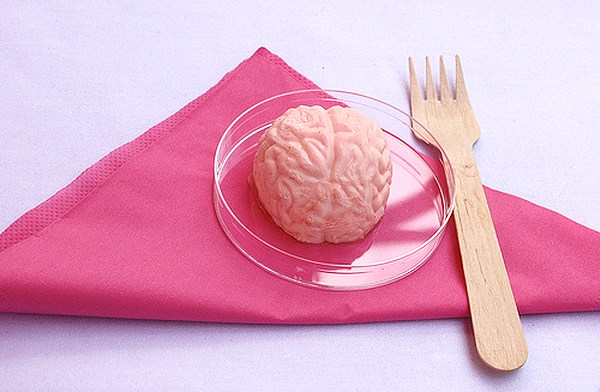Brain Bites are “now and then” morsels regarding trends, statistics, and interesting ephemera in personal economics. These tasty tidbits help maintain your edge over an unpredictable future. Think of them as cerebral snacks for the hungry mind!
Move over, Millennials
Millennials are currently 21.5% of the U.S. population and is the coveted demographic for businesses selling stuff. But Gen Z (born 1997 and after) is even larger at nearly 30% of the population. Before long they’ll be spending like it.
Ref: U.S. Census Bureau
Ashes, ashes, we all fall down
In a 2017 survey of 237 municipal pension plans across the country, 29 cities received an “F” grade, reflecting a funding ratio of less than 35%. Based on the size of its unfunded pension liabilities ($62 billion in the hole), Chicago is in the worst shape. The city has less than 33 cents set aside for every dollar promised. Who ya gonna call?
Ref: Truth in Accounting
Doing their duty
Three-quarters of Americans admit that they search the web, send e-mails, and check their social-media accounts in the bathroom.
Ref: The Economist
Greased lightning
On average, doctors spend 13 to 16 minutes per patient.
Ref: MedScape
I do (just not to you)
Can’t find the perfect partner? Why not marry yourself? A trend called sologamy is the act of marrying oneself. While you avoid complaints about squeezing the toothpaste and where to vacation, it’s not a legal process—you won’t get any tax breaks.
Ref: BBC
Equal opportunity
It’s not just large businesses and organizations that are targeted by hackers. According to the Better Business Bureau, one-in-five small businesses have been targeted by a cyber attack.
Ref: Better Business Bureau
Holla for a dolla
Net worth is what you own—houses, cars, retirement and savings accounts—minus what you owe, such as mortgages, student loans, credit cards, and car loans. In its Survey of Consumer Finances, done every 3 years, the Federal Reserve found that changes in median net worth of American families vary dramatically. From 1998 to 2016, (1) the lowest income families—the bottom fifth—saw their net worth fall 22%; (2) for the working class—the second-lowest income tier—net worth declined 34%; (3) families in the middle (incomes from $43,501 to $69,500) saw their net worth rise 3.5%; and (4) for the top 10%, net worth rose 146%.
Ref: U.S. Federal Reserve
Super-size!
By the time today’s kids reach the age of 35, 57% of them will be obese, researchers predict.
Ref: New England Journal of Medicine
Rocky Mountain high
Of 3,007 counties in the U.S., Colorado’s Summit County tops the list for the highest life expectancy (87 years). At the bottom is Oglala Lakota County in South Dakota, where residents live, on average, 20 years less.
Ref: The JAMA Network
Closet workers
Forty-three percent (43%) of employees worked remotely at least part of the time in 2016.
Ref: Gallup
Toxic waste
Nearly 1 one in 5 workers say they face a hostile or threatening environment at work, which can include sexual harassment or bullying. Workers who have to face customers endure a disproportionate share of abuse—nearly 55% say they face “unpleasant and potentially hazardous conditions.” Only 38% say their jobs offer good prospects for advancement.
Ref: RAND Corporation
Size matters
The share of folks who have “little or no confidence” in big business increased from 26% in 1976 to 39% today. For banks, it increased from 10% in 1979 to 28% today.
Ref: Gallup
One cup or three?
Funded by the National Cancer Institute, researchers examined coffee-drinking habits among more than 180,000 whites, African-Americans, Latinos, Japanese-Americans and native Hawaiians. Followed for an average of 16 years, people drinking 1 cup of coffee daily were found to have a 12% lower risk of death from heart disease, cancer, stroke, diabetes, respiratory, and kidney disease than those who didn’t drink the beverage. For those drinking 3 cups a day, the risk dropped by 18%. Cool beans!
Ref: Annals of Internal Medicine
And when they got there…
The cupboard was bare. Across the country, states and local governments have about $2 trillion less than what they need to cover retirement benefits.
Ref: CALPERS
Valued friends
The average annual value of Facebook to the consumer is around $750.
Ref: The Economist
Keep your hands off of my stack
College endowments have amassed $500 billion nationwide. Leaked documents from a Bermuda-based law firm revealed that a small group of Ivy League schools and highly selective colleges (about 11% of higher-education institutions) hold 74% of the moolah.
Ref: U.S. Congressional Research Service
Still punching the clock
Nineteen percent (19%) of Americans age 65 and over are still working. The last time the percentage was this high was when John F. Kennedy was in the White House.
Ref: Employee Benefit Research Institute
The nation’s staggering ill-bill
Medical costs have ballooned from 5% of GDP in 1960 to 17% of GDP last year.
Ref: Warren Buffett
Your good credit
145.5 million U.S. consumers had their personal data stolen by hackers in the 2017 Equifax breach—nearly half the country’s population.
Ref: Fortune
The gift that keeps on giving
The number of Americans diagnosed with Chlamydia, gonorrhea, or syphilis reached a record high in 2017 for the fourth year in a row, with more than 2 million cases reported. Health officials say the rates reflect decreasing condom usage, a lack of awareness about STDs among doctors and patients, and a falling number of STD clinics.
Ref: U.S. Center for Disease Control and Prevention
Life is good!
A survey last year found that 74% of people rated their lives as good or excellent—a higher number than at any time in more than a decade. Only 5% rated their lives as poor.
Ref: Rasmussen Reoprts
Count your blessings
If you had only $2,220 to your name (summing bank deposits, financial investments, and property holdings, less your debts) you would still be wealthier than half the world’s population.
Ref: Crédit Suisse Research Institute
If you have integrity, nothing else matters. If you don’t have integrity, nothing else matters.
~ Alan Simpson, former U.S. Senator (WY)
Don’t shoot—I’m only the piano player! The information in Brain Bites is sourced from a variety of usually reliable publications. Nevertheless, we cannot guarantee the accuracy or currency of this material and a degree of common sense should be applied before quoting it. If something appears to be too good to be true, it probably is.
Image credit: “Jelly Brain Dissection” by Guerilla Science (2010), licensed/modified (red ring removed) by permission of copyright holder.


